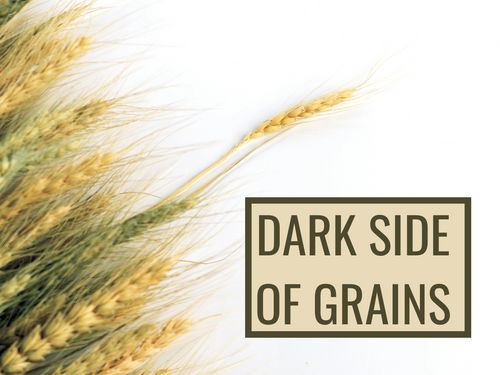The dark side of grains
Jul 18, 2021 · 2 mins read
0
Share

Bread and Other Edible Agents of Mental Disease is a thought-provoking paper by Paola Bressan. In this Memo, learn how the agricultural revolution changed humans, how grains affect your body, and how everyday food like bread is implicated in mental disease. Read on👇👇👇
Save
Share
Here’s what went up when humans started growing and eating grains 10,000 years ago: Infant mortality, infectious diseases, and bone mineral disorders. Here’s what went down: Lifespan and average height. Today we are “3 cm shorter than our pre-agricultural ancestors.”
Save
Share
Grains contain gluten. Gluten's breakdown in the body creates fragments that resemble morphine. They’re called exorphins. It's possible grains replaced traditional (and more nutritionally dense) food partly because the exorphins gave people a high they kept returning for.
Save
Share
“Abnormally high levels of exorphins," says Bressan, have been found in the cerebrospinal fluids of psychotic kids and women with postpartum psychosis. Injecting exorphins into rats makes them autistic.
Save
Share
Blast from the past: WW 2 led to wheat shortages in several countries. Hospitalization of schizophrenic patients went down in the same period. In the same interval, "consumption of wheat rose rather than diminished" in the US. Cases of schizophrenia went up.
Save
Share
In mice studies, grain proteins cross the “blood-brain barrier” and block the growth of new neurons. The immune system sometimes produces antibodies against gluten. In a petri dish, these antibodies attack crucial enzymes and the sheath that insulates nerves.
Save
Share
Antibodies against gluten are present in most unmedicated autistic children, and completely absent in most normal children.
Save
Share
Gluten and the gut: Gluten makes the human gut more permeable. Our immune system sees gluten as a microbial molecule, & releases zonulin. Zonulin inflames the gut, and guess who has inflamed guts? 92% of schizophrenic patients.
Save
Share
Extreme allergy to gluten = celiac disease. There are 6 undiagnosed celiac cases for every diagnosed one. Through immune overreaction in celiac patients, millions of “finger-like protrusions” on the intestinal wall go flat, destroying its ability to absorb nutrients from food.
Save
Share
Bottom line: New research suggests we need to rethink the place of grains in our diet. Grains can be a part of a healthy, balanced diet - but perhaps right now, they’re more ingrained than is ideal.
Save
Share
0